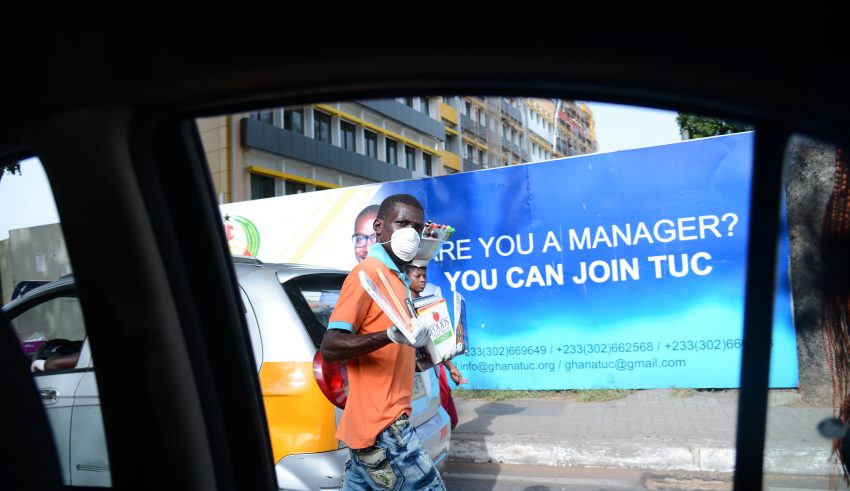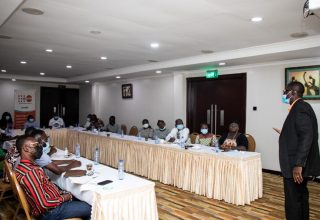
Living in the midst of confusion, fear, anxiety and uncertainly can be frustrating at a time of a global health pandemic, but what is even more terrifying is the thought that you might perish out of starvation and not the much-dreaded virus.
As many governments in the world have instituted lockdowns and other restrictions such as social distancing measures among citizens in order to limit further spread of the corona virus, it has become not only scientifically wise but commonsensical to stay at home to protect not just oneself but other people. Unfortunately, much needed risks must be taken. Schools have been shut down, lots of businesses are compelled to close temporarily and some people have been rendered jobless as a consequence of the business closures.
Despite this unexpected turn, is crucial to bear in mind a key part of the population who may be affected through job losses or an inability to work due to social distancing measures both in the formal and informal sector. It cannot be denied that young people constitute a significant number of Ghana’s population, with a notable number of them being unemployed. While government has put in place interventions such as the Nation Builders Corps and the Planting for Food and Jobs Programme to help provide services and deal with unemployment, it is undeniable that a lot of young Ghanaians are still unemployed while others engage in temporary jobs in the informal sector.
Indeed, Ghana’s unemployment rate has been an issue of concern for years thereby prompting these interventions, however it is prudent to think critically about some populations during this period because the situation is taking different dynamics. For instance, over one hundred casual workers at the Tamale Central Hospital have been reportedly laid off due to the hospital’s inability to generate funds internally as a result of low patients’ attendance to the hospital during the corona virus pandemic. The affected people include ward assistants, cleaners and records attendants who unfortunately are losing their jobs at a critical time where survival is a challenge especially because they must be socially distant and cannot take on new jobs.
Again, one may wonder what happened to the young man who sold Fanyogo or wiped people’s car screens in traffic? What about the young woman who sold plantain chips on the streets of Accra just to get by? There is no denying that fact that a lot of the people in the above-mentioned category did not earn enough to save and be financially secure in times where they cannot work; a lot of them engaged in meager jobs like the aforementioned in order to earn a living and get a roof over their heads. Therefore, it is prudent to wonder how they will survive during a period in which they cannot actively work and earn an income.
It is commendable that government, Non-Government Organisations (NGOs) and private corporations are helping to provide food for less privileged people in some communities. As laudable as that is, it is important to think about the sustainability and reach of such interventions. Although there have been questions about the feasibility and efficiency of distributing cooked meals to less deprived communities, it is vital to reiterate the need to go back to the drawing board and re-strategize on the effectiveness of such efforts and how they can be implemented to serve the real interest of the needy. One of the key drivers of the successful implementation of such interventions is accurate data. Unfortunately, the government of Ghana may not have accurate data to help in identifying and tracking all those who really need help in such situations. I must reiterate that this does not only affect young people in the informal sector but young employees who are not being paid because their employers are unable to pay them or cannot afford to make loses by paying them. Sadly, such people are not exempted from paying rent or taking care of their basic needs. Truly, the government is supporting with the payment of bills, which is commendable, but does that rid us of the reality that many young people possibly feel helpless in their homes although they may not necessarily be considered to be vulnerable because they do not live in certain neighborhoods?
The American Chamber of Commerce is reportedly supporting American businesses in Ghana following a survey amongst its members in order to ensure continuity of their businesses. Indeed, Ghana is unlike some “advanced” countries in the world where there are systems which make it possible to put workers on furlough and get them paid in times like these. Although Ghana may not have that financial and structural strength, it is possible to consider both short and long term interventions such as identifying and proving support to young unemployed youth during this period and most importantly strengthen actions in the long term such as providing sustainable jobs, eradicating corruption and reinvesting in citizen’s education and skills training.
Lastly, upon the establishment of the Covid-19 fund, President Akuffo-Addo stressed that the fund would be used to provide support to less-privileged people in the country. While I hope that the fund is transparently used for the purpose for which it was established, I also hope that it reaches the people who need it most; not only those who sleep on the streets but the other young people who may not show their grief openly but are struggling to survive during this period. Although the president assured that the government knows what to do to bring the economy back to life, I am hopeful that the silent cries of the young people who are possibly starving in their homes are heard.
Ms. Zarina Amandy
Photo@Buta photo journal















